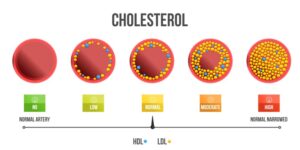What are the Signs of Hidden Anxiety?

The usual symptoms of general anxiety disorder (GAD) are fairly easy to recognize for anyone with the right medical and/or psychiatric training. In fact, the common signs of anxiety disorder are evident enough that most patients and those around them are generally capable of at least suspecting it. However, there are certain cases where the signs of hidden anxiety are not as common or evident. A quick look through them should provide us with a better idea regarding what they are and how to tell they are present.
Chest Pain
What most of us do not realize is that anxiety can manifest in very clear and dangerous physical symptoms as well. For example, someone suffering from chest pain is more likely to assume that it’s a heart attack, which in all honesty is not a bad mistake to make. When you don’t know how to tell the difference between panic attack-induced chest pain and chest pain caused by a heart attack, it is always best to err on the side of caution.
However, if you experience frequent chest pains and the doctors have not found any physiological reason for it, it’s most likely a clear sign of hidden anxiety. Nurses are learning more about detecting and managing patient anxiety with greater effectiveness nowadays because a big percentage of people who visit the ER after experiencing chest pain are found to be suffering from a panic attack rather than anything more serious.
Tinnitus
Tinnitus is classified as a symptom of mild to moderate hearing damage in one or both ears. It’s that ringing noise we hear sometimes when there is absolute silence, but someone with hearing damage may hear that same noise all the time. The noise itself is nonexistent though, as our brains simply create that false ringing noise to fill in for temporary sensory deprivation.
However, recent studies show tinnitus can at times be an indicator of anxiety as well. Anxiety amplifies the sensation of tinnitus to a much higher degree. Therefore, someone with only minor hearing damage may hear a ringing noise at a higher volume than they should. At the same time, someone without any hearing damage may find their tinnitus to be too loud in very quiet places.
Hives
Hives are generally a sign that you are experiencing an allergic reaction from something you came into contact with. In fact, some allergic hives can even lead to deadly conditions such as anaphylactic shock and Stephen-Johnsons syndrome. As it happens, there is evidence to suggest hives can also be a sign of anxiety. There are multiple skin disorders that have since been linked to anxiety now, although they are all transient.
The truth is that anxiety affects us all, but sometimes, things can become more serious. If it is left untreated and the symptoms keep coming back, it can eventually turn into general anxiety disorder. Whether you are the medical expert or the patient, keep an eye out for unusual symptoms and treat them early on.









